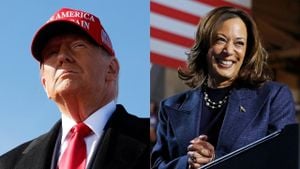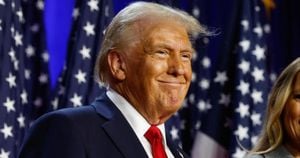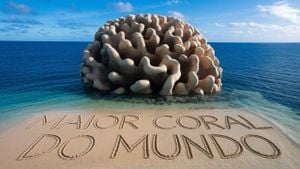The political climate in Venezuela remains tense following the controversial reelection of President Nicolás Maduro, who won the polls on July 28 amid widespread allegations of fraud and suppression. Now, the Venezuelan government is making headlines by announcing the release of 225 individuals detained during protests against this disputed electoral process. This move, hailed by some as a necessary step toward reconciliation, is raising questions about the future of political expression and human rights under Maduro's regime.
Details about the release surfaced from various sources, including government officials and local rights groups. The Attorney General, Tarek William Saab, confirmed the release, saying it began early Saturday morning across several prisons, including the notorious Tocorón facility. Saab noted this decision is part of the state's review process concerning the fate of over 2,400 individuals detained during the post-election fallout. Sources indicate this review might see even more releases as the government reassesses cases related to the protests.
Among the released, reports suggest at least 70 were recognized as political prisoners, with some being women and minors. Many of those freed had been detained during the nationwide protests, which erupted immediately after Maduro's reelection was announced. The protests, fueled by accusations of electoral fraud, were met with heavy-handed repression from security forces, leading to widespread violence. Human Rights Watch previously reported dozens of deaths resulting from this crackdown.
The situation became particularly severe after allegations surfaced concerning the deaths of detainees under suspicious circumstances. One notable case was Jesús Manuel Martínez Medina, who died after being taken hostage during the protests. His passing triggered outrage, prompting both local and international observers to call for accountability and justice.
Images circulating on social media displayed emotional scenes as families reunited with their loved ones outside prisons. These moments were bittersweet; they reflect years of struggle for freedom, yet they highlight the enormous cost of political dissent under Maduro's administration.
Despite the government's gestures toward releasing detainees, many remain skeptical about the sincerity of these actions. Local rights groups have been instrumental in advocating for prisoners' rights, emphasizing the need for justice and transparency. Advocates worry this may be merely another tactic by the Maduro government to deflect criticisms of its repressive tactics and questionable electoral practices.
The backdrop to these events is complex. The rejection of Maduro's legitimacy isn't limited to local opposition; international condemnation has echoed throughout the Americas and the world. Countries and organizations have dismissed the election results, calling for genuine dialogue between the government and opposition parties to secure democratic reforms.
Commentators note, these reformations could be pivotal if Venezuela hopes to move from its current state of turmoil toward stability and recovery. The country has long been plagued by economic distress, hyperinflation, and significant poverty levels, compounded by the political unrest.
While the release of 225 prisoners is undoubtedly a positive development for some, it serves as another layer of a larger conversation about human rights, reconciliation, and governance. Many analysts suggest the way forward for Maduro hinges significantly upon addressing fundamental grievances among the populace.
Critics note there is still considerable work to be done. The issue of political detainment has created fissures and distrust among Venezuelans, and without full accountability and legal reforms, the potential for future unrest remains high. The attention now shifts to how the government will respond to the rights movements pushing for more comprehensive changes and if it is genuinely prepared to embrace electoral reforms.
Activists are watching closely to see if this release signals the beginning of broader reforms or if it is merely political maneuvering intended to quell dissent, even temporarily. Their hope is firmly planted on the recognition of political freedoms and protections against arbitrary arrest—foundational components for any future electoral processes.
The interplay of politics, state power, and individual rights stands at the forefront of Venezuela's story. With Maduro's government showing signs of conceding to pressure, the coming days and weeks could very well determine whether these small steps toward freedom will transcend to meaningful change.



